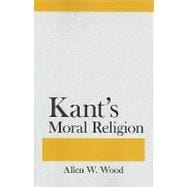
Note: Supplemental materials are not guaranteed with Rental or Used book purchases.
Purchase Benefits
What is included with this book?
| Abbreviations | p. xi |
| Introduction | p. 1 |
| Kant's Moral Arguments | p. 10 |
| Knowledge and Belief | p. 13 |
| Pragmatic Belief | p. 17 |
| The Absurdum Practicum | p. 25 |
| The Moral Argument for Freedom | p. 34 |
| Finite Rational Volition | p. 38 |
| Motives, Ends, and Maxims | p. 40 |
| Maxims and Autonomy | p. 45 |
| "Happiness" and Rational Volition | p. 52 |
| The Unconditioned Good | p. 60 |
| The Highest Good | p. 69 |
| The Moral Good | p. 71 |
| The Natural Good | p. 78 |
| The Idea of an Unconditioned Object of Pure Practical Reason | p. 90 |
| The Practical Postulates | p. 100 |
| The First Antinomy of Practical Reason | p. 105 |
| The Postulate of Immortality | p. 116 |
| The Second Antinomy of Practical Reason | p. 124 |
| The Postulate of God's Existence | p. 129 |
| The Postulates and Their Practical Function | p. 145 |
| Moral Faith and Rational Religion | p. 153 |
| Moral Despair | p. 155 |
| Moral Faith in God | p. 160 |
| Moral Faith in Immortality | p. 176 |
| Moral Faith and Illusion | p. 182 |
| Religion and the Church | p. 187 |
| Religious Experience and Revelation | p. 201 |
| Radical Evil and Divine Grace | p. 208 |
| The Concept of Radical Evil | p. 210 |
| The Critique of Man's Moral Nature | p. 219 |
| Moral Progress and Perfection | p. 226 |
| The Postulate of Divine Grace | p. 232 |
| Conclusion | p. 249 |
| Notes | p. 255 |
| Bibliography | p. 273 |
| Index | p. 281 |
| Table of Contents provided by Ingram. All Rights Reserved. |
The New copy of this book will include any supplemental materials advertised. Please check the title of the book to determine if it should include any access cards, study guides, lab manuals, CDs, etc.
The Used, Rental and eBook copies of this book are not guaranteed to include any supplemental materials. Typically, only the book itself is included. This is true even if the title states it includes any access cards, study guides, lab manuals, CDs, etc.